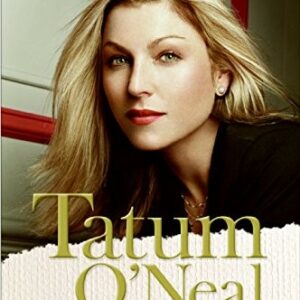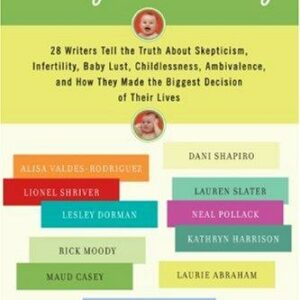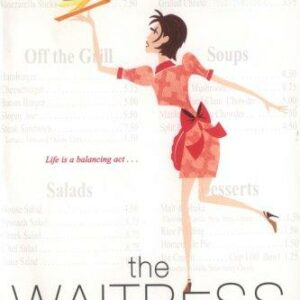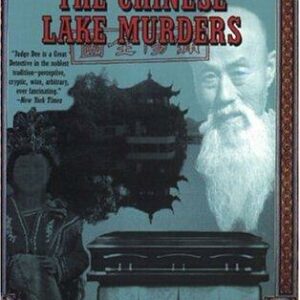Yearn
$22.00
| Title | Range | Discount |
|---|---|---|
| Trade Discount | 5 + | 25% |
- Description
- Additional information
Description
Boundary-pushing erotica for readers eager to move beyond Fifty Shades of Gray
Tobsha Learner has won international acclaim for her deeply atmospheric and lyrical brand of erotic fiction. In Yearn, the author of Quiver and Tremble continues to probe the complexities of desire, obsession, and lust to offer readers myriad possibilities for indulging their deepest fantasies.
From the movie star who longs for anonymity to the telemarketer seeking an online release to the eighteenth-century biographer who discovers a magic, erotic ritual that will change his life forever, Learner offers nine witty, sensual, and provocative short stories that are guaranteed to satisfy readers’ growing appetite for erotic fiction.”A fine erotic follow-up to her prior novels and offers short stories that probe obsession and lust in various scenarios. From a movie star who wants anonymity to a telemarketer looking for online lust and more, these short stories represent erotic fiction at its best: variety, steamy sex scenes, and all backed by characters that come alive with more than just sexual interests in mind. It’s this attention to settings and build-up that make Yearn an exceptional collection of erotica fiction, recommended for women who seek more detail in such genre reading.”—The Bookwatch
“Nine sensual, witty and mystical short stories… This book is a luscious indulgence, in the same category as bubble baths and champagne.”—Newcastle Herald
“A clever, prettily written and, yes, titillating collection of tales that would hold their own even if they weren’t graphically accessorised with lust.”—The Daily Telegraph (Australia)
TOBSHA LEARNER was born and raised in England and has lived in both Australia and the United States. She is a playwright as well as an author and writes for several genres. Her collections of erotic short stories are Quiver, Tremble, and Yearn; her historical fiction includes The Witch of Cologne and Soul; and among her thrillers are The Map and Sphinx. She divides her time between London, San Diego, and Sydney. If you want to read another erotic short story, go to www.tobshaseroticfiction.com and click the link for a free download of the story and subscribe to Tobsha’s quarterly newsletter.
INKIt is an old story, an allegory of power if you like, of the tragedy that happens when two men overreach themselves, or the terror that ?lls a creator when he realizes his creation has become more gifted than he. It is one that even I, the most successful writer of my times, know well, for we must all, eventually, give way to the young. And this story involves a very young writer, a passionate individual with the gifts of both beauty and rhetoric—blazing in his ambition. The now infamous D’Arcy Hammer. Perhaps you have heard of him?
D’Arcy Hammer put down his pen and slumped over his writing desk. It was a temporary submission, a nod to the gargantuan nature of the enterprise that the ambitious thirty-two-yearold had begun six years ago, when time seemed in?nite and his future a mirage full of extraordinary possibilities. Now it was 1843, a hundred years after his subject, Joseph Banks, was born, and the biography D’Arcy had labored over lay annotated in sections before him. By his feverish calculations he was only weeks away from delivering to his publisher, which meant they would have his opus to display in bookshop windows before Christmas.
“And God knows, I need the money,” D’Arcy spoke out loud, addressing the bust of the botanist he’d placed in one corner of the large study in the faint hope that by writing under the gaze of Sir Joseph he might gain his posthumous approval.
When D’Arcy Hammer had been a mere twenty-oneyear-old student in his last year at Oxford, under the tutorship of his then mentor, the eminent biographer Horace Tuttle, he had garnered an international literary reputation for a slim biographical volume charting the scandalous and sexually ambiguous life of the eighteenth-century Lord Hervey, himself, like D’Arcy, a onetime scholar of Westminster School.
The reviews had been generous and the dapper young biographer had become a regular attraction on the lecture circuit, where he courted both infamy and an adoring (mainly female) public. But his success had come at a price. Horace Tuttle, a man he both intensely admired and sought to emulate, had grown to resent his protégé’s easy acclaim and began an insidious campaign to undermine the young man’s reputation. The two men fell out and overnight mentor became nemesis. However, the acrimony hadn’t stopped D’Arcy from falling in love with Horace Tuttle’s young niece, Clementine Jane Murray, the daughter of an in?uential aristocrat.
But over time the royalties and fame of his ?rst book had evaporated. D’Arcy needed this new biography to be successful— hugely successful. He’d ?nally got engaged to the seemingly unobtainable Clementine and he knew it would fall upon him to keep her in the manner in which she had always lived. Then there was the unavoidable issue of his own father—Lord Hammer, a successful shipping entrepreneur and member of the House of Lords. Unfortunately the aristocrat regarded his son’s literary ambitions as a folly bordering on social suicide. An understandable attitude I, as a working author, can only condone; after all, so few of us are commercially successful, and certainly, in my case, I was compelled by the dire circumstances of my family to make money from my art, whereas at least D’Arcy had had a choice.
Lord Hammer, an esteemed and august gentleman, had agreed to provide D’Arcy with a monthly stipend on the proviso that it should be regarded as a loan with a ceiling of ?ve thousand pounds, a ceiling, at the telling of this story, that would be reached on the fourth of next month, after which D’Arcy would be penniless.
The young biographer was near despair—he had thought he’d timed the writing of the biography to the very minute, but he had run into debt months before. It was imperative he deliver the manuscript before his father’s stipulated date in order to receive his publishing advance and stave off his creditors— of which there were now many. Despite all these irritating challenges he was con?dent of success. Defeatism and humility had never been part of D’Arcy Hammer’s emotional repartee, and as he glanced over at the neat piles of chapters—each containing episodes of vivid adventure and professional intrigue as well as graphic descriptions of Joseph Banks’s libertine and rather salacious philosophies—D’Arcy had never felt surer of commercial potential. He even imagined it could be a subject for serialization in a newspaper—a little like my own literary forays that were proving so successful.
He lit a cigar and walked to the window. The elegant townhouse belonged to his aunt, an unmarried gentlewoman who doted upon her nephew. Luckily for him she was only in London for the season; the rest of the year she joined Lord Hammer, her brother, on his country estate in Shrewsbury, leaving D’Arcy to run the house to his liking. The Georgian mansion was situated in Mayfair, just off St. James’s Square, and D’Arcy’s rooms (a study, bedroom, and small sitting room) were situated on the second story. When his aunt was not in situ, the staff was reduced to one old butler and his wife, the housekeeper. The solitude and arrangement suited the young biographer perfectly. It enabled him to entertain in some style that was still affordable, and the infrequency with which the butler and his wife actually climbed the stairs to his rooms allowed him the peace and isolation required to write.
D’Arcy pulled open a window. The park in the center of the square was luxuriant with foliage and ?owers in full blossom. Lilac trees, their boughs heavy with white and purple blossoms, were scattered between the ?owering pink chestnut trees. Luckily the wind was blowing toward the Thames and the obnoxious, ever-present odor of sewage did not undercut the scent of the lilac caught up in the breeze. It was early summer and already it promised to be an unseasonably hot month. D’Arcy exhaled a feathery plume of cigar smoke into the air, where it hung suspended for a moment before drifting down toward the street. For once it felt wonderful to be both young and literary, and now that the completion of the manuscript was within sight—powerful. Sinking into the sweet reverie that comes with intellectual achievement, D’Arcy gazed down at the lilac trees, his mind drawn back to the last paragraph he’d written—a depiction of a particularly beautiful Polynesian beach Joseph Banks had described in his journals.
D’Arcy’s initial attraction to the botanist was one of empathy, an imagined understanding between the biographer and his subject that, given half a chance and the bottomless economic resources Joseph Banks had had at his disposal, plus the added advantage of being orphaned before he was twenty-two, D’Arcy himself might have lived such a life. The liberal nature of Banks’s early years was a source of admiration for D’Arcy, particularly the open way he’d lived with his mistress despite society’s disapproval. Such actions, D’Arcy had decided, depicted a man of both great courage and intense intellectual curiosity, with little to no regard for how others thought of him—if only he himself had the courage to live in such a manner! These were the characteristics that had drawn D’Arcy to the gentleman explorer. And then there was Joseph Banks’s account of his ?rst visit to Polynesia, an account that portrayed the country as a utopia ?lled with uninhibited beautiful natives, both men and women. The diaries had fascinated D’Arcy and he had drawn liberally upon them for his biography, imagining his own portrait of the great man to be a source of simultaneous condemnation, secret envy, and great curiosity to his own Victorian peers. The biography promised to be one of those irresistibly titillating books, condemned by the critics, bought openly by men and secretly by women. It would be a commercial success.
The ringing of church bells from nearby disturbed his meditations. D’Arcy pulled out his large gold fob watch—it was already two in the afternoon. He was then interrupted by a knock on the door. It was John Henries, the butler, a tall stooped man in his late sixties with the lingering dignity of a once-handsome man. He stood politely just outside the study, accustomed as he was to the biographer’s explosive nature when writing.
“Sir, there is a young man outside, an employee of your publishers, I believe. He informs me that you are to visit them immediately, on an urgent matter,” he announced in a quavering baritone.
“Did the young man describe the nature of the matter?”
“No sir, he only reported it to be most urgent.”
D’Arcy’s imagination spun wildly as he contemplated the myriad of requests, demands, and dismissals that might be the reason behind such a summoning. But, as I explained before, our young biographer was both a narcissist and an optimist, and ?nally he concluded it was merely one of those fortuitous moments of synchronicity—he had almost completed his book and with whom else but his publisher to share the good news?
“Excellent. I have to see them anyhow. I shall be down momentarily.”
The offices of Bingham and Crosby Esquire might have been considered the rooms of an affluent and successful publishing house twenty years earlier—which indeed they were—but now they had the appearance of a fading courtesan ravaged by age and bad judgment in her choice of patron. True, the waiting parlor had both a well-stuffed French sofa covered in red velvet and two matching chairs in the Georgian style, but the velvet was worn to a thin sheen and the gold trimming frayed. And, for the ?rst time, D’Arcy noticed that the secretary, whom he remembered as a young, eager student of literature given to monologues expounding the literary virtues of whomever his employers had just published, was no longer young, no longer eager, and indeed now exuded a positively sullen air. In fact, D’Arcy realized as he waited, perched uncomfortably on one of the threadbare chairs, it must have been years since he’d last visited the publishers.
“Mr. Crosby will now see you, Mr. Hammer,” the secretary announced in a lugubrious tone before opening the door. Mr. Crosby, a bewhiskered gentleman imbued with an elegance that had always reminded D’Arcy of a Renaissance statesman, sat behind his desk. An air of grim determination hovered about his person. His assistant, the younger Clarence Dingle, leapt up to shake D’Arcy’s hand while Crosby stayed noticeably seated.
“Wonderful to see you, truly, and we are so excited . . .” Dingle’s words spilled out like a cascade of ?at piano notes—his enthusiasm seemed utterly perfunctory and mechanical, D’Arcy observed. The biographer, now a little nervous, ?icked his jacket tails clear and sat down in a lone chair standing in the center of the room.
“Dingle, cease your inane mumblings! You’re not fooling anyone, least of all Hammer here, who’s a very sharp young puppy!” the elder publisher barked from his leather-backed throne. Startled, the assistant sat down abruptly.
Mr. Crosby leaned forward, his halitosis drifting toward D’Arcy like a bad omen. The young biographer steeled himself. “The truth is, Mr. Hammer, we have called you here to discuss the import of a very grave rumor. . . .”
“A very grave rumor indeed,” Dingle echoed for emphasis.
D’Arcy’s face tightened in anticipation. This was not the reception he had expected. What had gone wrong? He had informed them that the manuscript would be in by the end of the month, and Crosby had replied, conveying the company’s enthusiasm, by telegram. “A grave rumor?” he queried, a break in his voice betraying his agitation. Crosby’s hand crept across the marble-topped desk, his ?ngers curling around a paperweight that appeared to be a skull carved out of quartz crystal.
“It has been suggested that an associate of yours, the eminent Horace Tuttle, is also working on the de?nitive biography of the botanist Joseph Banks.”
Shocked, D’Arcy inhaled sharply. The animosity between Tuttle and him was well known, but Tuttle was older by a good ?fteen years and excelled in literary reputation by three more critically acclaimed biographies. If there were to be a rival biography by Tuttle, he would have the upper hand. The idea was unthinkable.
“That simply isn’t possible. Tuttle has been wrestling with Lord Nelson for the past two years.”
“In that case Lord Nelson must have won,” Crosby replied cryptically, then reached into a large snuffbox and, after laying out two large rust-colored pinches of tobacco upon the crook of his thumb, snorted them both up vigorously, staining his nostrils a dark red. He looked like a melancholic dragon, D’Arcy couldn’t help noting. It was a distracting sight. Crosby coughed, then continued: “No, I’m afraid I have it on good authority that Tuttle has lodged the notion with Doubleday and Sons, and has promised a manuscript by next Easter. Heard it from the dog’s mouth myself, in the gentlemen’s cloakroom at the Garrick. Naturally this is of great concern to both myself and Bingham. . . .”
For a moment D’Arcy thought he’d misheard. As far as he knew, Bingham, Crosby’s business partner, had been dead for at least ?ve years. The elderly publisher’s expression suddenly changed as he shifted his gaze beyond D’Arcy’s shoulder. Unable to contain his curiosity, D’Arcy swung around. A portrait of the esteemed but deceased Mr. Bingham—in life, a man far more affable than Crosby—hung on the wall directly behind him. D’Arcy had the distinct impression that the shining jovial face in the portrait had suddenly winked at him. Dingle coughed politely and Crosby was immediately drawn back into the moment. “. . . and calls for a review of your own proposal and publishing timetable,” Crosby concluded gruffly. D’Arcy sank back into his chair, his ?scal strategies sunk. How could he afford to marry Clementine now? And how on earth would he be able to both pay off his creditors and avoid being pushed into his father’s shipping business if his next book was a publishing disaster? But more than anything, how had Tuttle arrived at the idea of the very same biography as his own? D’Arcy’s own venture was a well-kept secret between himself and the publisher. And even if Tuttle had heard of the project, it could only have been spite or perversity that inspired his rival to undertake the very same subject so late in the development of D’Arcy’s own manuscript. But there was something else that ?lled him with a nauseating disquiet. Had his ?ancée, who was an intelligent but frivolous young woman far younger than he, accidentally blurted out the topic of his labors to her uncle? Or even worse, had she unwittingly shown his rival some of his pages? The young author’s imagination swirled up into paranoia—if this was true, it was even more of a horrible betrayal. Either way he had to save his biography and his own reputation.
“This is just ugly coincidence!” D’Arcy exclaimed more passionately than he’d intended. “Besides, my manuscript is merely days away from completion. We will beat him to the shelves, I promise you!”
In the silence that followed, Crosby, in lieu of an answer, solemnly packed a pipe while D’Arcy ?dgeted anxiously, convinced he was facing a verdict that would either make or condemn the rest of his literary career. Finally the tension was broken by Dingle striking a match dramatically. The assistant leaned solemnly forward to light the pipe for his employer. Then, like Vesuvius, after exhaling a large plume of white smoke Crosby rumbled, “Bingham and Crosby are not only men of the letter but also of our word. We will still publish, and we will publish ahead of Tuttle and Doubleday. However, you must guarantee that your biography will contain some new and hopefully salacious insights into Banks’s early, morally dubious forays that will create enough hysteria amongst the scandalmongers and newspaper gentlemen to sell the godforsaken book!” He swung around to the portrait of his deceased partner: “Forgive me, Bingham, but if we are to survive and become a ‘modern’ publishing house, then we must surrender to the bestial demands of the gods of commerce,” he said before wiping his brow with a large purple silk handkerchief as if he had himself been sullied by such a declaration.
D’Arcy stared at him aghast. “But every such event and proclivity is already embedded in the manuscript, sir!”
“Then ?nd something else!” Crosby thumped the desk for emphasis, one precariously balanced manuscript falling with a bang to the ?oor. No one dared to pick it up. Softening, the publisher turned back to D’Arcy. “My dear young man, research is the portal, but imagination the messenger,” he concluded with an air of pompous sagacity—an impenetrable remark that left the young biographer even more perplexed.
Crosby rose with a dramatic scraping of his chair against the ?oor, then balanced his portly front against the edge of the desk. He had, D’Arcy noticed, become considerably plumper since the last time D’Arcy had seen him. The publisher was again staring reverently at his deceased partner’s portrait as if he were engaged in some kind of preternatural communication. “And Mr. Bingham tells me to tell you he expects the delivery of the completed and . . . enhanced . . . manuscript by the end of this month. Thank you, young Hammer, that will be all.”
The young biographer walked straight to his ?ancée’s townhouse. As he marched down Great Marlborough Street an intense fury began to build from the soles of his fashionable buttoned boots to the crown of his high top hat. Had Clementine betrayed him? Could she have been so foolish as to reveal to her uncle the subject of his secret dedication? He had to discover the truth. All the previous trust, the confessed intimacies of his ambition whispered to the young girl, seemed cheapened. As he examined the nature of their courtship—her passive yet delightfully innocent amazement at his passionate enthusiasm for the eighteenth-century botanist and his exotic adventures—D’Arcy could not envisage that Clementine would be capable of such disloyalty. As I have said, D’Arcy was young and still in the naive throes of the kind of egotism we all fall victim to at the beginning of our careers, and to D’Arcy’s great disservice, Clementine had convinced him of his own genius. Any man would have fallen in love.
At twenty, Clementine was twelve years younger than he and utterly without guile, or at least he had thought so up until then. D’Arcy had been smitten the ?rst time he’d laid eyes upon her—at her uncle’s table seven years earlier, when she was a mere thirteen years old and he a cynical twenty-?ve-year-old—the year in which he later fell out with Horace Tuttle. At the time he was in the middle of a protracted love affair with a married woman (who shall remain nameless on these pages at least, but suffice it to say that the woman specialized in the seduction of gullible writers and I am shamed to confess that I was one amongst many). An erotically charged relationship involving complicated liaisons in obscure and extremely dangerous places (she was rather good), the love affair had exhausted D’Arcy both emotionally and existentially. Three tortured years later he encountered Clementine at her coming-out ball. Then sixteen, she seemed to embody all the virtues his older lover did not: virginal, uncomplicated, and delightfully candid. At the time D’Arcy had despaired of the possibility of marriage, having come to the conclusion that he was now too jaded to experience the emotion of love. However, he broke off his affair with the married woman and took to pursuing the young girl, a pursuit further ?red by her uncle’s objections. A year later they were engaged.
Clementine’s innocence had swept through his life like a scented breeze over a barren landscape, a metaphor he clung to as strongly as his cologne-infused handkerchief, now pressed to his face as he turned in to the dense and pungent chaos that was Soho. The daily sewage-laden miasma of the Thames was now blowing in from the south, and in the unusually hot summer the stench in this densely populated borough was particularly disgusting.
Despite living in the comparative luxury of spacious, green, and quiet Mayfair, D’Arcy was constantly drawn to the vibrancy of Soho, the bustling narrow streets with their tailors, leather-curing factories, coffeehouses, and inns as well as the once-grand mansions of Golden Square, now reduced to cheap housing in which whole families often lived in one room. But there was a warmth and rhythm to the place that the promenades of Mayfair lacked—a borough controlled and austere in its wealth. This seething mass of striving humanity was exotic to D’Arcy. And as a member of the titled classes, he could afford to indulge in its corrupt pleasures and, most important, get out when he wanted.
Indeed there was one particular prostitute he was fond of visiting who lived on Golden Square—a practical Irish wench who had scraped together the ?imsy trappings of respectability. It was to here that D’Arcy, after a spiritually uplifting but frustrating evening with his ?ancée, would often return, if only to enact upon the lady’s rented body fantasies he knew he would never be able to execute upon Clementine’s slender, lily-white frame. And it was at this very harlot’s window that D’Arcy now found himself staring, his feet having guided him there by pure instinct. “No, I shall resist,” he told himself, knowing that taking out his anger or frustration upon the prostitute would be counterproductive and, knowing her rates and his purse, economically disastrous.
“I really will confront Clementine. As suspicious as I am, I’m sure there is a completely innocent explanation—pure coincidence, for example.” It was an argument that failed to convince even him.
Nevertheless he glanced wistfully back up at the window— the ironically named Prudence O’Malley was a comely girl with an earthy sensuality matched by an earthy laugh. She was also very good at the amusing but erotic scenarios D’Arcy found entertaining. In short, despite the heat of the afternoon, it would have been a very pleasant distraction from the young biographer’s current troubles. The memory of their last encounter, during which D’Arcy had donned a leather saddle at her command so that she could ride him and whip him, made him harden. He waited until his tumescence had lessened into some semblance of decency, then walked on—ah, the glorious dictatorship of a young body; I remember it well!
“What exactly are you trying to say, my love?”
Clementine, wearing a rose-colored day dress, was perched very becomingly on the edge of a chaise longue, ?ngering the beaded fringes of her shawl; her escort, an ever-present maiden aunt, sat at a discreet distance in a window seat, theoretically absorbed in her embroidery. It was not an atmosphere conducive to either whispered confessions or confrontation. D’Arcy cleared his throat nervously. “I ?nd that I now face potential professional catastrophe, one that could prevent me from being able to support you in the manner to which you are accustomed once we are married.”
“Oh goodness”—Clementine yawned prettily, displaying rows of pearly white little teeth—“it does sound tiresome. What kind of catastrophe? I thought you had ?nally ?nished with the great heroic literary tome you had embarked upon.”
For a moment it occurred to D’Arcy that if his ?ancée hadn’t been so imbued with both beauty and youth, he might care for her personality a little less, but like a cloud passing over the sun this observation was quickly lost and forgotten. “I have told you the subject of my biography, have I not?” he inquired dryly.
“You have, the extraordinary adventures and life of one Joseph Hanks, I believe,” she replied, now fanning herself. “The heat today is quite remarkable, remarkable and tiresome. But my love, you’d think if Mr. Hanks was so extraordinary he would have had at least two surnames and a title.”
Really, D’Arcy thought to himself, if her lips weren’t quite as red, her skin quite as pale, and if those blond tendrils that framed that catlike face not quite so perfect, he might have taken her for being petulant and perhaps even a little stupid. On the other hand, he was comforted by the observation that if she couldn’t even remember the name correctly, she was surely unlikely to have passed on the subject of his biography to her uncle.
“His name was Banks, Sir Joseph Banks, and he was, by the time of his death, one of the most signi?cant English ?gures in science of his times, my dear. But I’m sure such details will only give your pretty head an ache, insigni?cant as he is in your delightfully girlish world, Clementine.” Indeed, it was the seeming purity of the trivia of this world that had attracted D’Arcy to Clementine in the ?rst place. Although lately, to his faint amazement, he’d been ?nding her lack of intellectual curiosity an irritant. “However, you wouldn’t by any possible chance have told your uncle Horace about my biography? Mentioned Joseph Banks and my name in the same sentence, for example?” he asked, studying his ?ancée’s face closely. Clementine’s expression appeared unchanged, although if our young biographer had been a little less infatuated and a little more astute, he might have noticed her ?ngers tightening around the handle of her lace fan.
“Now, why would I do that? I hardly see my uncle, and certainly not alone,” she protested, now waving her fan furiously at one ?ushed cheek.
“But you mentioned he escorted you to Ascot only last week!”
“He did? I had quite forgotten.”
“Just as you might have forgotten mentioning to him that I was writing the de?nitive biography of Sir Joseph Banks!” D’Arcy, unable to contain his frustration any longer, exploded. Behind him he heard the sound of Clementine’s aged escort dropping her embroidery; it hit the parquet ?oor with a clatter.
Clementine’s large blue eyes seemed to magnify as they ?lled with tears. “I am sure I have not!” she protested. It was the ?rst time in their two years of official engagement that either of them had raised their voices to each other and already D’Arcy was ?lled with remorse.
He edged forward and took her trembling hands in his own. “You have to understand, Clementine, that not everyone is as innocent and without guile as yourself. Your uncle and I have a history that I have tried to explain before. We are in commercial competition. I am Brutus to his Caesar.”
“You mean to kill him?” Clementine’s eyes widened even further and one tear, welling over the edge of her thick eyelashes, splashed down her cheek.
The sight gave D’Arcy a secret erotic thrill. Appalled to discover he found such power so exciting, he cursed his tight breeches as he crossed his legs. “I mean that if your uncle has discovered I am writing about Joseph Banks, he might take it upon himself to match me with a biography of the gentleman himself.”
“He would not. Uncle Horace is a perfect sweetheart, and he knows I am engaged to you.”
“But, Clementine, he has! This was the professional setback I have been trying to explain to you. My publisher has received rumor that your uncle is also writing a biography of Banks! It is a calamity!”
“So there will be two books about the same man; how can this be so terrible?”
“Because your uncle is far more established than myself; his biography will have precedence over mine, with both the newspapers and with the reader. Six years, Clementine, six years of my life—and it is ruined! Are you absolutely sure you didn’t, by accident, mention something to your uncle?”
Furious, the young woman rose, one hand worrying the emerald engagement ring he had given her. For a moment D’Arcy grew terri?ed that she might be about to pull it off to throw at his feet. In perfect synchronicity, her aged aunt also rose. The two women stood poised like ?gures from a Greek tragedy in the center of the large Regency drawing room, until Clementine held out her hand imperiously to D’Arcy. He kissed it formally.
“At this moment I have nothing more to say to you,” she announced and then, with a small nod, dismissed him.
D’Arcy strode down Regent Street, the tails of his morning coat ?ying behind him. Normally its wide promenade and sweeping elegance never failed to elevate his spirits, functioning, as it were, as a lodestone of wealth for the struggling writer. But today was different. Today he felt as if the mannequins and the displayed luxurious fabrics and dresses, the objets d’art, the tailored suits, the gold fob watches glinting through the shop-front windows all represented a club whose membership had just been cruelly and unjustly snatched away from him, snatched away by one man and one man alone. Horace Tuttle.
US
Additional information
| Dimensions | 0.8300 × 5.3100 × 8.0000 in |
|---|---|
| Imprint | |
| Format | |
| ISBN-13 | |
| ISBN-10 | |
| Author | |
| Audience | |
| BISAC | |
| Subjects | long story short, fur, complex, BDSM, erotica, erotic, sexy, furry, empowered, short story anthology, fiction books, books fiction, romance novels, victorian, short story collections, short stories collections, porn, smutty romance novels, smutty books, bondage, story collection, orgy, furries, pornography, tremble, sex, united kingdom, british, women, female, power, london, animal, historical, magic, sexual, sexuality, woman, FIC029000, romance, fiction, paranormal, Animals, fantasy, Dreams, novels, short stories, character driven, UK, empowerment |










